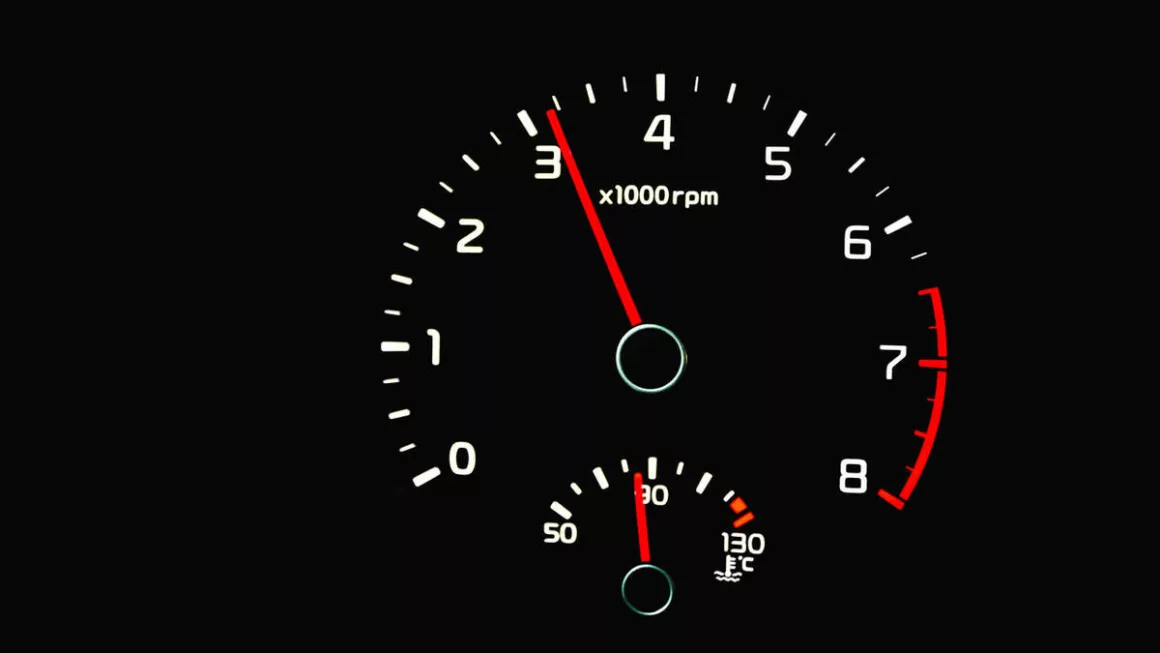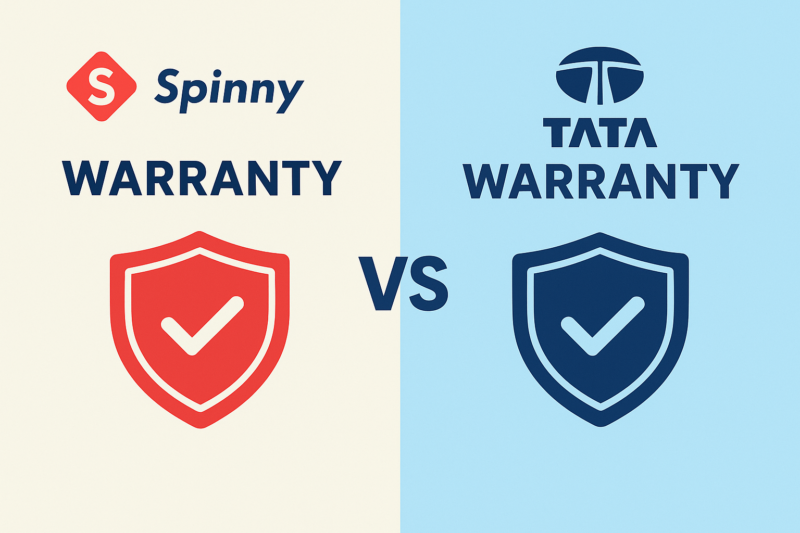Cars are more than just a way to commute. They are marvellous machines with many intricacies that will genuinely make you admire the engineering behind them. From handbrakes to dashboard warning lights, there are several little marvels that will amaze you if you pay attention. One such marvel is the RPM or Revolution per Minute reading, which helps you get an insight into your car’s real-time engine performance. Often ignored, RPM readings are crucial for getting the best out of your car’s engine in terms of performance as well as efficiency. Once mastered, RPM readings can open doors to better performance and an elevated driving experience every time you take your car for a spin. But to master the skill, it is important for you to know everything about RPM in a car.
RPM Full Form
An abbreviation that is used to describe a car’s revolution per minute, RPM is a metric that gives an insight into the engine’s real-time performance. It is essentially a metric that signifies how fast the engine’s crankshaft is spinning. RPM readings are displayed on the tachometer either manually or digitally through numbers 1,2,3, and so on. Each number denotes a range of 1000 RPM. So, if your RPM gauge is displaying 3, it means the engine’s crankshaft is spinning at 3000 revolutions per minute.
How does RPM indicate performance?
Now that you know what RPM stands for, it will be interesting to know how RPM indicates the real-time performance of your vehicle. To give an insight into your engine’s real-time performance, the RPM meter indicates how many times the engine’s crankshaft completes a full rotation or revolution in a minute. When you drive your vehicle at a higher RPM, your engine’s crankshaft spins faster, rapidly burning fuel to generate more power and torque. On the other hand, when you drive your car at a lower RPM, the engine spins slower, translating to a smoother drive with better fuel efficiency. Moreover, RPM readings are also important for smoother gear shifting, engine protection, and driving comfort. When gears are shifted within optimal RPM ranges, the shifting experience becomes a lot smoother, while the engine is kept safe from excessive wear and tear as well as over-revving. Therefore, RPM is truly the key to unlocking optimal engine performance and ensuring that your car’s engine stays healthy in the long run.
What is the best RPM for fuel efficiency?
Getting the best fuel efficiency out of a car is every driver’s dream. And now that you know how crucial the RPM readings are for getting the best efficiency, it would be interesting for you to know the best RPM for fuel efficiency.
When it comes to getting the best efficiency, you must know the general rule of RPM, which is that the higher the RPM, the higher the fuel consumption of the engine. But with a wide RPM range available, a question that might bug you is when to shift gears and at which RPM to drive. To answer the first part of the question, the 2000 to 3000 RPM range is often the RPM range you should aim for when shifting gears to elicit the maximum mileage. While shifting at a higher range might offer better acceleration, it will only come at the cost of mileage. Coming to the next part of the question, finding the optimal driving RPM largely depends on several factors, such as the type of engine, capacity, and its power and torque figures. While finding a sweet spot might take time, driving in a higher gear at a lower RPM is the secret sauce that will help you achieve maximum efficiency. Generally speaking, the RPM range of 1500-2500 is the ideal spot for efficient driving.
How to identify issues in power generation using RPM
While the RPM meter is a great insight into the engine’s real-time performance, it can also be used to identify issues in power generation. If you happen to notice your RPM meter fluctuate or go up and down without an apparent reason, chances are there is something wrong with your vehicle. Factors that usually lead to RPM fluctuations include:
Old Spark Plugs
Aged spark plugs lead to inefficient engine ignition, which is often translated to rising and falling RPMs and unwanted fluctuations.
Vacuum Leakage
A leak in the engine vacuum can cause a vacuum loss in the engine. This affects the engine’s capacity to perform efficiently, leading to RPM fluctuations.
Faulty Throttle Sensor
Problems with the throttle sensor can also cause RPM fluctuations and stalling, especially when the vehicle is accelerated.
Fuel Injection Problems
Dirty or clogged fuel injectors and problems with the fuel pump, etc., can also lead to stalling, slipping and jittery acceleration, making it problematic to maintain a constant RPM range.
Gearbox Fluid Leak
In case there is a fluid leak in the transmission, the gearbox becomes slippery, making it problematic to achieve higher speeds. This makes the engine compensate by achieving a higher RPM; however, the car does not go any faster.
Clogged Air Filter
A clogged air filter can also be the primary cause of RPM fluctuations since a clogged filter restricts air supply to the engines, causing RPMs to increase or decrease rapidly as the engine struggles to intake air.
Faulty Idle Air Control Valve
Another reason irregular RPM fluctuations could be a faulty idle air control valve, which might lead to RPM variation without any apparent accelerations.
Therefore, if you happen to pay attention to the RPM meter while driving, you can have a good insight into your car engine’s health and can recognise and eliminate issues in power generation.
FAQs
Q. What is car RPM?
A: RPM, or revolutions per Minute, is a metric that gives an insight into the engine’s real-time performance. It signifies how fast the engine is spinning.
Q: Will driving in high RPM harm my engine?
A: When you drive your car in higher RPM, the engine operates faster, leading to more power and torque generation with higher fuel burning and engine load. While higher RPMs are great when you need a sudden burst of power, constantly driving at higher RPMs might give extra stress to your engine, leading to faster wear and tear as well as overreving.
Q: What is the best RPM range for shifting and mileage?
A: Finding the optimal driving RPM largely depends on several factors, such as the type of engine, capacity, and its power and torque figures. However, the 2000 to 3000 RPM range is ideal for shifting gears, and the 1500 to 2500 RPM range is ideal for efficient driving.
Q: What does RPM fluctuation mean?
A: If you happen to notice your RPM meter fluctuate or go up and down without an apparent reason, chances are there is something wrong with your vehicle. Factors that usually lead to RPM fluctuations include old spark plugs, vacuum leakage, faulty throttle sensor, problems in fuel injection, gearbox fluid leak, clogged air filter, etc.





